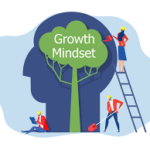Introduction
Setbacks are an inevitable part of life, but they don’t have to define our journey. Instead, they can become powerful catalysts for growth and success. In this comprehensive guide, we will explore how to turn failures into fuel for success. By embracing challenges and learning from our mistakes, we can build resilience, develop new skills, and ultimately achieve our goals.
Topics we cover here.
ToggleUnderstanding Setbacks
The Nature of Setbacks
Setbacks are disruptions or obstacles that hinder progress toward our goals. They can arise in various aspects of life, including personal endeavors, professional careers, and educational pursuits. Understanding the nature of setbacks is the first step in overcoming them. Setbacks can be unexpected and unwelcome, but they are also opportunities for growth and development.
Common Types of Setbacks
Setbacks come in many forms. Some common types include:
- Personal Setbacks: Health issues, relationship problems, or personal loss.
- Professional Setbacks: Job loss, failure to secure a promotion, or business challenges.
- Academic Setbacks: Poor grades, failing a course, or being rejected from a desired program.
- Financial Setbacks: Debt, unexpected expenses, or poor investments.
By identifying and acknowledging these setbacks, we can better prepare to address and overcome them.
The Psychology of Failure
Emotional Impact
Failure often brings about a range of emotions, including disappointment, frustration, and even shame. These emotions can be powerful and overwhelming, making it difficult to see the potential for growth. However, it’s crucial to acknowledge and process these feelings rather than suppress them. Emotional resilience is key to navigating setbacks effectively.
Cognitive Reframing
Cognitive reframing is a psychological technique that involves changing the way we perceive a situation. By shifting our perspective, we can view setbacks as learning experiences rather than failures. This shift in mindset can reduce the emotional impact of setbacks and open up new possibilities for growth and improvement.
Case Studies of Famous Failures
Iconic Figures
Many successful individuals have faced significant setbacks on their journey to success. For example:
- Thomas Edison: Known for his persistence, Edison faced thousands of failed experiments before inventing the electric light bulb.
- J.K. Rowling: Before achieving fame with the Harry Potter series, Rowling faced numerous rejections from publishers and personal hardships.
Lessons Learned
These stories teach us that failure is not the end but a stepping stone to success. By studying these case studies, we can learn valuable lessons about perseverance, resilience, and the power of a positive mindset.
Embracing a Growth Mindset
Fixed vs. Growth Mindset
A fixed mindset is the belief that our abilities and intelligence are static and unchangeable. In contrast, a growth mindset is the belief that we can develop our abilities through dedication and hard work. Embracing a growth mindset allows us to view setbacks as opportunities for learning and growth.
Benefits of a Growth Mindset
A growth mindset encourages us to:
- Embrace challenges
- Persist in the face of obstacles
- Learn from criticism
- Find inspiration in the success of others
By adopting a growth mindset, we can turn setbacks into valuable learning experiences and continue to move forward.
Resilience: The Key to Overcoming Setbacks
Building Resilience
Resilience is the ability to bounce back from adversity. It involves developing mental, emotional, and physical strength to withstand challenges. Building resilience requires:
- Self-awareness: Understanding our strengths and weaknesses
- Adaptability: Being open to change and new experiences
- Optimism: Maintaining a positive outlook even in difficult times
Resilience in Action
Practical steps to build resilience include:
- Developing healthy habits: Regular exercise, balanced nutrition, and adequate sleep
- Practicing mindfulness: Techniques such as meditation and deep breathing
- Seeking support: Building strong relationships with family, friends, and mentors
By cultivating resilience, we can better navigate setbacks and emerge stronger.
Developing a Positive Attitude
Power of Positivity
A positive attitude can significantly influence our ability to overcome setbacks. Positivity helps us stay motivated, maintain focus, and find solutions to problems. It also improves our overall well-being and reduces stress.
Techniques to Stay Positive
- Gratitude: Regularly expressing gratitude for the good things in life
- Affirmations: Using positive statements to reinforce self-belief
- Visualization: Imagining successful outcomes to build confidence and motivation
These techniques can help us maintain a positive attitude, even in the face of setbacks.
Setting Realistic Goals
SMART Goals
Setting realistic and achievable goals is crucial for overcoming setbacks. SMART goals are:
- Specific: Clearly defined and focused
- Measurable: Able to track progress
- Achievable: Realistic and attainable
- Relevant: Aligned with broader objectives
- Time-bound: Set within a specific timeframe
Long-term vs. Short-term Goals
Balancing long-term and short-term goals can help maintain motivation and provide a clear path forward. Short-term goals offer immediate rewards and momentum, while long-term goals keep us focused on our ultimate objectives.
Learning from Mistakes
Importance of Feedback
Feedback is essential for growth and improvement. Constructive criticism helps us identify areas for development and refine our approach. By actively seeking feedback, we can turn mistakes into valuable learning opportunities.
RELATED: Nature as Muse: 5 Creative Activities to Find Inspiration in the Outdoors
Constructive Criticism
Constructive criticism should be specific, actionable, and focused on behaviors rather than personal attributes. Receiving and applying constructive criticism helps us improve and avoid repeating the same mistakes.
Building a Support System
Finding Mentors
Mentors provide guidance, support, and wisdom based on their experiences. A strong mentor can offer valuable insights and encouragement, helping us navigate setbacks and achieve our goals.
Role of Family and Friends
Family and friends play a crucial role in our support system. They provide emotional support, encouragement, and a sense of belonging. Cultivating strong relationships with loved ones can help us stay resilient and motivated. overcoming setbacks
Stress Management Techniques
Mindfulness
Mindfulness involves being present and fully engaged in the current moment. It helps reduce stress, improve focus, and enhance overall well-being. Practices such as meditation, deep breathing, and mindful walking can help manage stress effectively.
Relaxation Techniques
Relaxation techniques, such as progressive muscle relaxation, guided imagery, and aromatherapy, can help reduce stress and promote relaxation. Incorporating these techniques into our daily routine can improve our ability to cope with setbacks.
Developing Problem-Solving Skills
Analytical Thinking
Analytical thinking involves breaking down complex problems into smaller, manageable parts. This approach helps us identify the root cause of a problem and develop effective solutions.
Creative Solutions
Creativity is essential for problem-solving. By thinking outside the box and exploring unconventional solutions, we can overcome setbacks and achieve our goals. Techniques such as brainstorming, mind mapping, and lateral thinking can enhance our creative problem-solving abilities. overcoming setbacks
Time Management and Productivity
Prioritization
Effective time management involves prioritizing tasks based on their importance and urgency. By focusing on high-priority tasks, we can make significant progress toward our goals and reduce the impact of setbacks.
Effective Planning
Planning helps us organize our time and resources efficiently. Creating a detailed plan with clear steps and deadlines can help us stay on track and achieve our goals, even when faced with setbacks.
Harnessing Motivation
Intrinsic vs. Extrinsic Motivation
Intrinsic motivation comes from within, driven by personal satisfaction and a sense of accomplishment. Extrinsic motivation. overcoming setbacks









